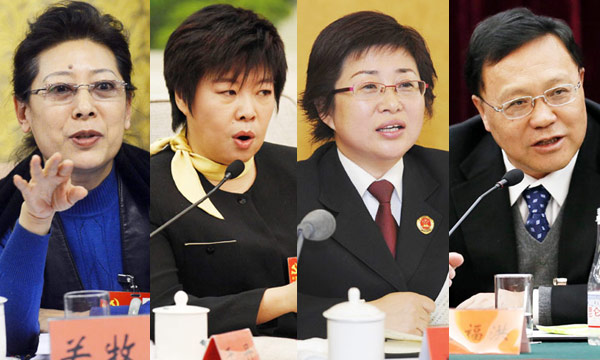Party place
By David Bartram (China Daily European Weekly)
Updated: 2011-06-24 11:04
CPC Time Line
1921: Founding of the Communist Party of China
Between July 23 and 31, 1921, Mao Zedong, He Shuheng, Dong Biwu, Chen Tanqiu, Wang Jinmei, Deng Enming, Li Da, Li Hanjun, Zhang Guotao, Liu Renjing, Chen Gongbo and Zhou Fohai, representing 50-odd members of various Communist groups, hold the first National Congress in Shanghai, and the Communist Party of China is officially founded.
1934-1936: Long March
In October 1934, the First Red Army sets out from Yudu in Jiangxi province and embarks on the Long March, which is seen as a strategic retreat to combat the Kuomintang regime. Later, various forces of the Red Army start their long marches, traverse more than 10,000 km, and eventually join forces in Gansu in October 1936. In January 1935, the Political Bureau of the CPC Central Committee holds an enlarged meeting in Zunyi, Guizhou province, along the way of the Long March. The Zunyi meeting establishes a new central leadership represented by Mao Zedong.
1937-1945: The War of Resistance against Japanese Aggression
In July 1937, Japan launches all-out aggression against China. The Eighth Route Army and the New Fourth Army, under the leadership of the CPC, fight against most of the Japanese forces, thus playing a decisive role in eventual victory.
1946-1949: War of Liberation
From June 1946, the Kuomintang armies launch an all-round attack on the Liberated Areas led by the CPC, and a large-scale civil war starts. Through the Liaoxi-Shenyang, Huaihai and Beiping-Tianjin campaigns, the CPC overthrows the Kuomintang and wins a great victory in 1949.
1949: Founding of the People's Republic of China
From September 21 to 30, 1949, various political parties, popular organizations, non-Party democrats and representatives attend the first Chinese People's Political Consultative Conference (CPPCC). It elects a Central People's Government Council, with Mao Zedong as chairman, and appoints Zhou Enlai premier of the Government Administration Council. On October 1, 1949, Chairman Mao Zedong proclaims the founding of the People's Republic of China at Tian'anmen Square in Beijing.
1958-1961: Great Leap Forward
The central government, led by the CPC, launches an economic and social campaign in 1958 to rapidly transform China from an agrarian economy into a modern Communist society. The campaign eventually comes to an end as it causes imbalances in the national economy, fiscal deficits over consecutive years, and great hardship for the people.
1966-1976: "cultural revolution"
The "cultural revolution", lasting from May 1966 to October 1976, is initiated and led by Mao Zedong. Taking advantage of Mao Zedong's mistakes in his later years, the "Gang of Four" engage in activities that bring great catastrophe to the country and people.
1978: The Third Plenary Session of the 11th Central Committee of the Party
The Third Plenary Session of the 11th Central Committee of the Communist Party of China, held in December 1978, decides to shift the focus of the Party's work to socialist modernization and sets a policy of reform and opening-up to the outside world, initiated by Deng Xiaoping.
1997: Private sector acknowledged
In the report to the 15th National Congress of the CPC held in September 1997, Jiang Zemin positions the non-public sector as an important component part of the socialist market economy, which is a milestone.
2003: Scientific Outlook on Development
The Scientific Outlook on Development is a major strategic concept put forward by Hu Jintao, general secretary of the Central Committee of the CPC, during the 16th CPC Central Committee in 2003. The concept puts people first and calls for comprehensive, balanced and sustainable development.

Top News
Xi emphasizes adherence to CPC Congress spirit
Top legislator urges implementation of congress spirit
Moderately prosperous China brings chances to world
Video







